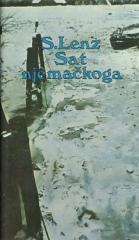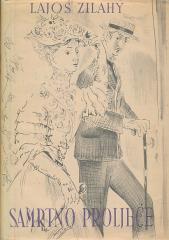
Gubitak
The novel explores trauma and dealing with the past through the story of former soldier and prisoner Erik Svensson. Set in post-war Germany, Lenz explores themes of guilt, identity, and trying to find meaning in life after the war.
Erik, a former Wehrmacht soldier, returns to his hometown in northern Germany after being captured in Russia, where he tries to rebuild his life. However, his past haunts him – the loss of his beloved Linda, and the burden of war experiences make it difficult for him to adjust to everyday life. The novel follows Erik’s inner struggles as he confronts a sense of alienation and an inability to connect with those around him. Through his encounters with family, friends, and new acquaintances, Lenz subtly depicts how the traumas of war continue to shape the lives of individuals and society.
Erik’s loss is not only personal, but symbolizes the broader loss of a generation affected by war – the loss of innocence, trust, and hope. The novel addresses issues of moral responsibility and reconciliation with the past, while Lenz’s introspective style emphasizes a quiet but powerful emotional depth. Through precise language and layered characters, Loss offers a universal story of survival and the search for redemption in a world marked by wounds.
One copy is available





